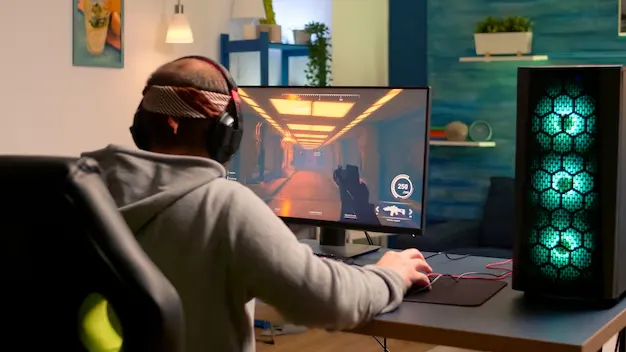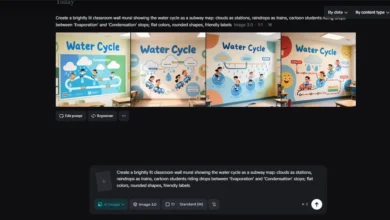
Online gaming has become a ubiquitous part of modern life, with billions of players worldwide engaging in virtual worlds that extend far beyond entertainment. As of 2025, the global gaming industry has reached a scale of over 200 billion dollars.
VR, AR, and cloud gaming technologies have erased the boundary between reality and the digital world. While gaming provides many people with pleasure, some argue that its effects on mental health, social interactions, productivity, employment opportunities, and even the national economy are profound.
This article explores the multifaceted influences of online games on real life, drawing from recent studies and player experiences. We will check both positive and negative aspects, take Rust as a case study game, and give some pointers on finding balance.
Positive Influences of Online Games
Online games can foster growth and connection in ways that ripple into everyday life. When played in moderation, they serve as platforms for skill-building, community, and even therapeutic benefits.
Building Social Connections and Communities
One of the most celebrated impacts is the formation of real-world friendships and support networks through online interactions. Multiplayer games foster collaboration and communication, which often lead to friendships. For example, studies of informal social networks in gaming have shown that individuals use them to relieve stress and create a sense of belonging.
Research suggests that social relationships can be improved by multiplayer online games, depending on the games and the intensity of the players. In 2025, games integrated with Discord and other platforms will further enhance these, transforming virtual colleagues into actual friends or business partners.
Enhancing Cognitive and Practical Skills
Gaming demands quick thinking, strategy, and problem-solving, which can translate to improved cognitive functions. According to research, video games enhance one’s focus, cognitive function, and even brain matter. Multiplayer games have been credited positively for enhancing skills in decision-making and flexibility.
Games designed to educate learners, such as Roblox and Minecraft Education, have even been integrated into classrooms as a means to inspire students to learn history and science, thus fostering real-world education. For Z, students, balance while playing video games can enhance one’s mental condition, as video games tend to serve as a relaxation method.
Economic and Career Opportunities
The rise of esports and content creation has turned gaming into a viable career path. Professional players earn salaries, sponsorships, and prize money, while streamers on platforms like Twitch build businesses around their gameplay.
In 2025, the e-sports industry is expected to bring in revenues of hundreds of billions and all sorts of related jobs like coaching, event managing, or even programming. Moreover, games foster creativity and imagination, which can mediate motivations and lead to innovative thinking in professional settings.
Mental Health Benefits
Contrary to common myths, gaming isn’t inherently harmful to mental health. When players can stop at will, no causal link to poor well-being has been established, regardless of game type. Some games consciously meant to foster positive outcomes actually produce gains for kids, providing relaxation and ways to express emotions. Gaming can provide stress relief and feelings of success that mirror therapeutic activities for adults.
Negative Influences of Online Games
Despite the upsides, excessive gaming can lead to detrimental effects, particularly when it interferes with daily responsibilities. Recent studies highlight risks that affect physical, psychological, and social well-being.
Addiction and Time Management Issues
Gaming addiction is an increasing issue, where the pathological behaviors are correlated with decreased satisfaction in life and impaired routines. Young people, especially adolescents, can develop negative emotions that drive addictive behavior due to a lack of self-control and stress. Too much play has been related to poor academic achievements, physical inactivity, and less time studying amongst students.
Physical Health Concerns
Prolonged sessions often lead to sedentary lifestyles, contributing to issues like obesity, eye strain, and poor sleep. Research has been associated with sleep disruption as a result of heavy gaming and with attention, mood, and health. Overexposure in children may worsen these issues with long-term physical harm.
Social and Psychological Drawbacks
While gaming can build connections, it can also foster isolation if it replaces real-life interactions. Teens also state some positives, such as making friends, and some negatives, such as being harassed and losing sleep because of gaming. Experimentally, violent content is associated with aggression, particularly in children. Cyberbullying and poisonous communities may cause anxiety, mood disorders, and social problems. Excessive involvement can lead to isolation and solitude.
Broader Societal Impacts
On a larger scale, gaming can influence behaviors like desensitization to violence or unrealistic expectations. However, Studies have highlighted that these effects depend on the individual and that excessive play is the most significant risk factor. Online gaming has a dual effect on the Generation Z is determined by how individuals handle it.
Case Study: The Influence of Rust on Players’ Real Lives
Rust, a survival multiplayer game developed by Facepunch Studios, exemplifies how online games can mirror and affect real-world dynamics. Through this brutal open world setting, players can scavenge resources, construct bases, find alliances and raid, resulting in intense player driven tales of trust, betrayal and tactics.
The difficulty of the game requires fast (and adaptable) decision-making and these abilities are what players claim to bring to the real-world situations, including problem-solving in work or personal pressures. The development of Rust has been heavily influenced by community feedback, and the decisions of the players have influenced changes and additions, which helps make the players feel like they own it.
However, Rust’s impact isn’t always positive. Its toxic community has been called one of the most aggressive in gaming, potentially exacerbating real-life stress or aggression. Player stories abound of emotional highs and lows, with some describing profound effects on their mental health, including addiction that disrupts daily activities.
TikTok testimonials highlight how Rust “ruined” lives through obsessive play, yet others praise its rewarding grind and community bonds.
Rust demonstrates gaming’s dual nature: a tool for building resilience or a source of real-world strain. We remind you that during the game, you must follow the rules and not use Rust cheats and hacks, as other unscrupulous players do.
Balancing Online Gaming with Real Life
To maximize benefits and minimize harms, moderation is key. Set time limits, prioritize physical activity, and engage in diverse social interactions outside gaming. Parents and educators can guide children toward positive games, while adults should monitor for addiction signs.
As research evolves, game developers are increasingly designing titles with well-being in mind, incorporating features like playtime reminders.

















